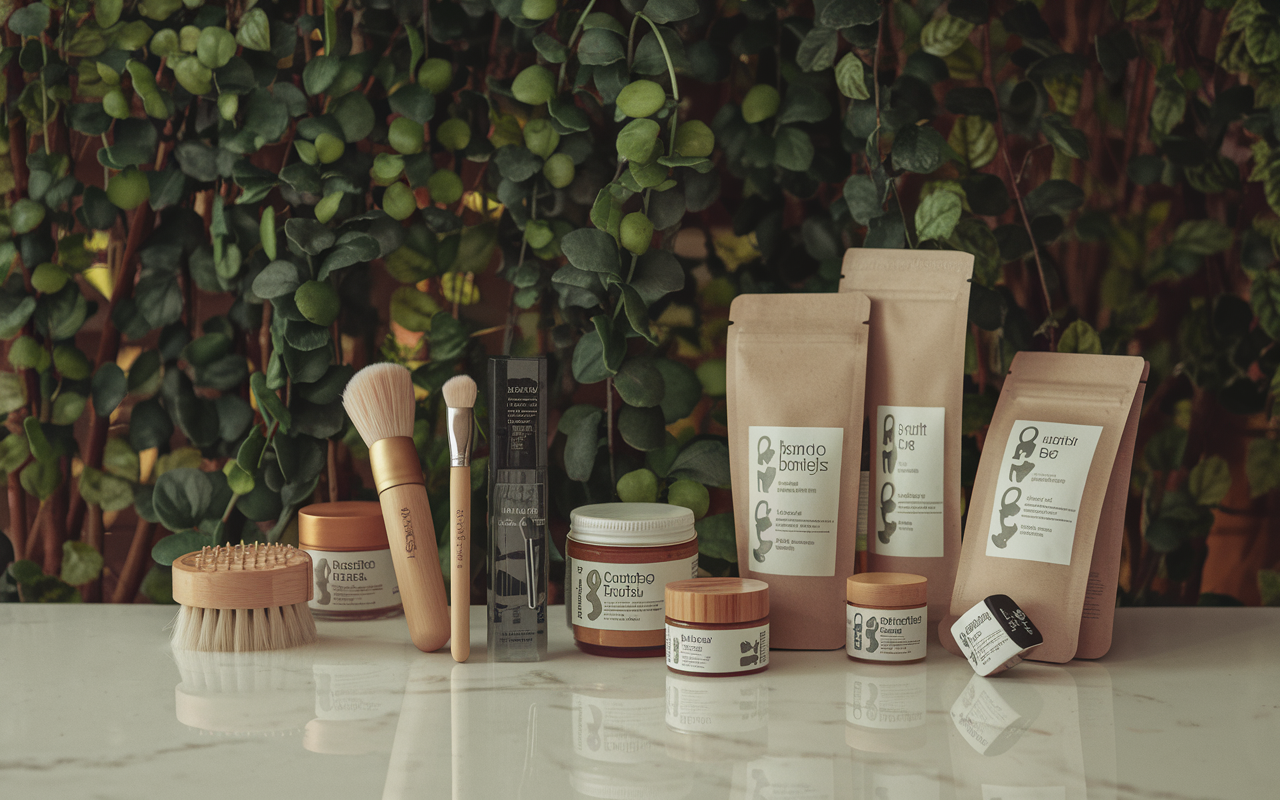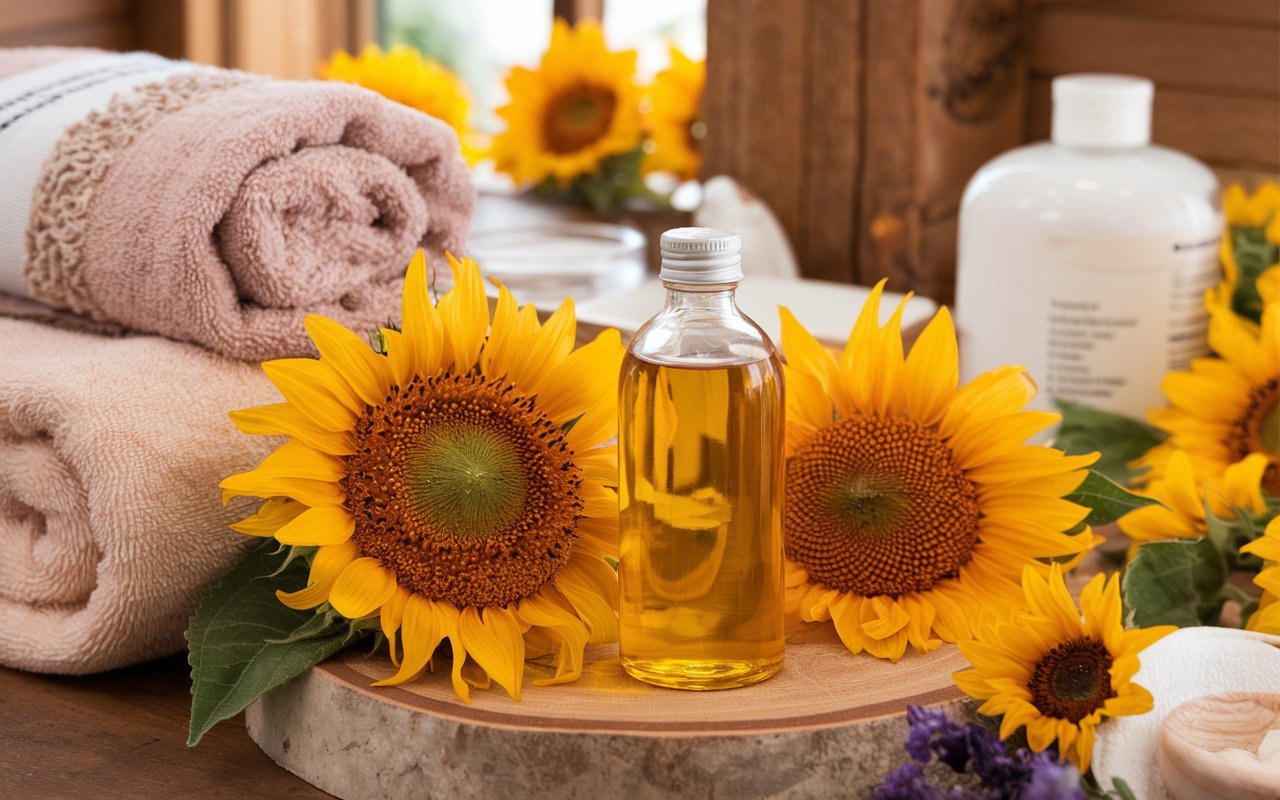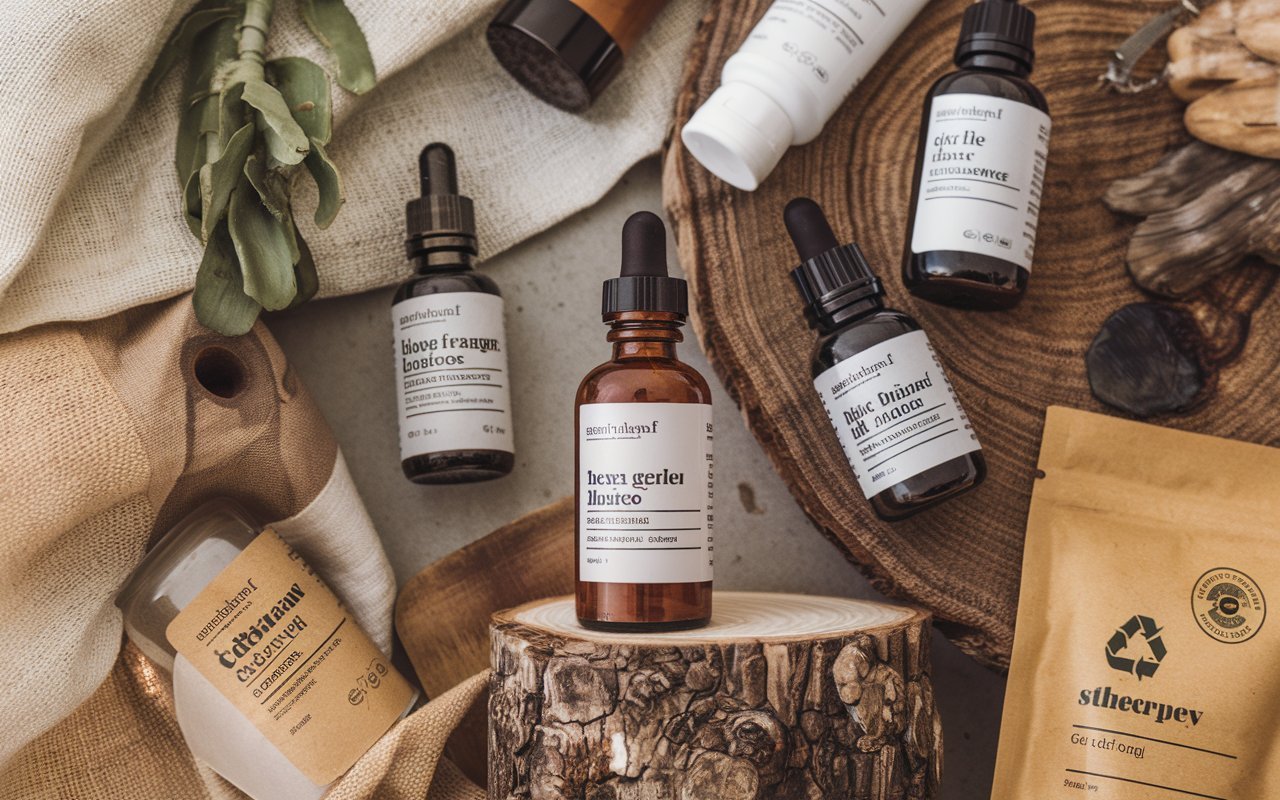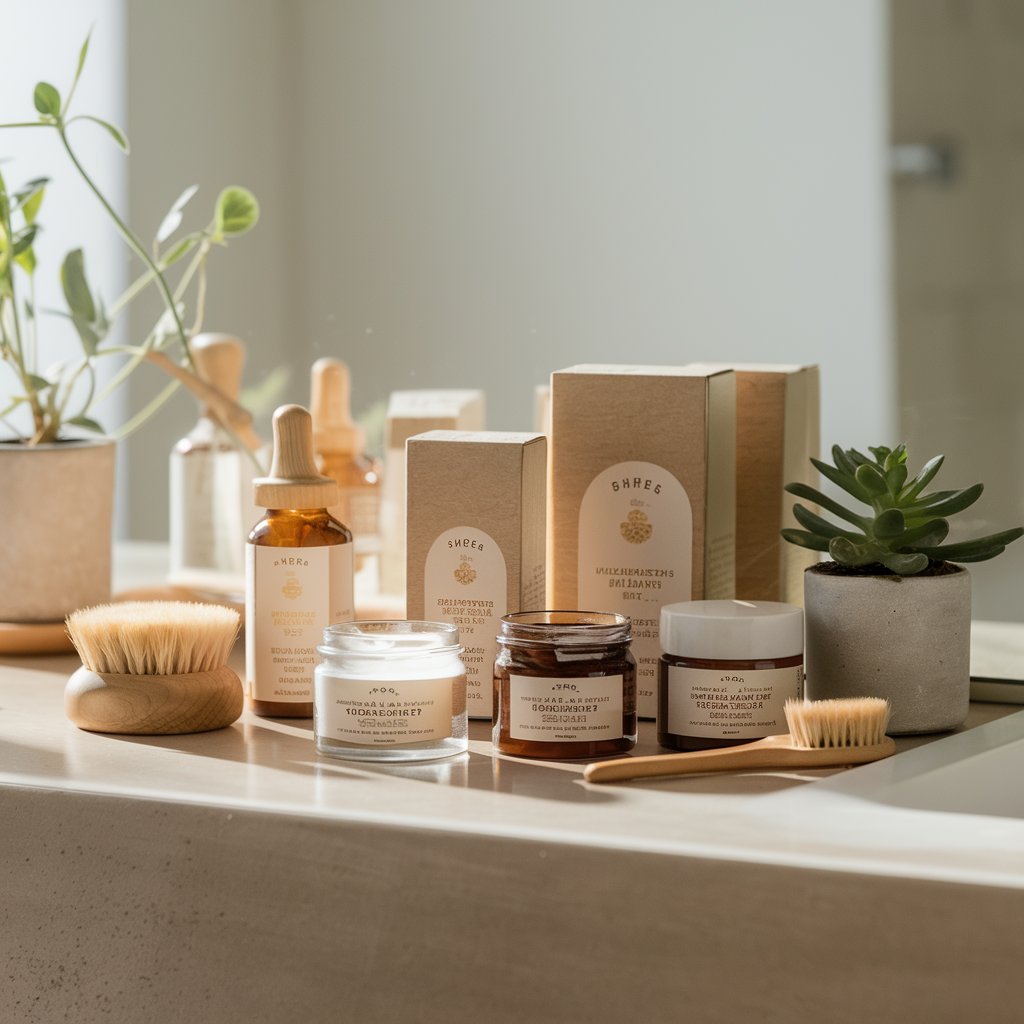
Introduction
Have you ever stopped to consider the true impact of what you put on your skin?Our skin is our largest organ, absorbing up to 60% of what we apply to it. It’s a sobering thought, isn’t it? When you reach for that bottle of lotion or jar of cream, are you feeding your skin with nourishing ingredients that it craves, or are you inadvertently poisoning it with harmful chemicals? The choices we make in our skin care routines are more than skin-deep; they reflect our values, our relationship with the environment, and our care for our own well-being.
This is the heart of organic skin care—a movement that encourages us to return to nature, to treat our skin with the love and respect it deserves, and to embrace a more conscious way of living.
Why Choose Organic Skin Care?
The Emotional Impact of Skin Care Choices
Skin care is about more than simply looking nice—it’s also about feeling well. The products we use can influence our self-esteem, our mood, and even our overall health. Think about the joy of using a product that not only makes your skin glow but also brings you peace of mind, knowing it’s made from the purest ingredients. There’s a deep emotional connection between how we care for our skin and how we care for ourselves. When you choose organic skin care, you’re not just choosing a product—you’re choosing a lifestyle that values purity, authenticity, and sustainability.
The Harmful Effects of Synthetic Products
Many conventional skin care products are filled with synthetic ingredients that can have damaging effects on your skin and overall health. Parabens, phthalates, and sulfates are just a few of the harmful chemicals commonly found in these products. These substances can disrupt your hormones, cause allergic reactions, and even increase the risk of cancer. Imagine the frustration of spending time and money on products that promise to improve your skin, only to find out that they’re causing long-term damage. It’s a betrayal of trust, and it’s time we start questioning what we’re really putting on our skin.
The Benefits of Going Organic
Switching to organic skin care is like a breath of fresh air for your skin. Organic products are made from ingredients that are grown without the use of pesticides, synthetic fertilizers, or genetically modified organisms (GMOs). This means that what you’re putting on your skin is pure, safe, and beneficial. Organic skin care is rich in vitamins, antioxidants, and nutrients that work with your skin, rather than against it. Imagine the feeling of applying a cream that is packed with natural oils and botanicals, knowing that each ingredient is carefully chosen to nourish, protect, and heal your skin. It’s a form of self-care that goes beyond the surface, touching your heart and soul.
Understanding Organic Ingredients
What Qualifies as Organic?
To truly appreciate the value of organic skin care, it’s important to understand what makes an ingredient organic. Organic ingredients are those that are grown and processed without the use of synthetic chemicals, pesticides, or fertilizers. They are not genetically modified and must meet strict standards set by organizations like the USDA or Ecocert. These standards ensure that the ingredients are as close to their natural state as possible, preserving their purity and potency. When you see a product labeled as organic, you can trust that it is made from ingredients that have been grown and harvested with care, without compromising the environment or your health.
The Journey from Farm to Face: How Organic Ingredients Are Harvested
The process of creating organic skin care products is a journey that starts on the farm. Organic farming practices prioritize the health of the soil, the plants, and the environment. Farmers use natural methods to nourish the soil, such as composting and crop rotation, which enhance the quality of the crops. The plants are then harvested at the peak of their potency, ensuring that they are rich in nutrients and beneficial compounds. This careful process is what makes organic ingredients so special—they are not just grown; they are nurtured, from the seed to the final product.
Key Organic Ingredients to Look For
When choosing organic skin care products, it’s important to know which ingredients are truly beneficial for your skin. The following are important organic ingredients to search for:
- Aloe Vera: Known for its soothing and hydrating properties, aloe vera is a staple in organic skin care. It’s ideal for sensitive skin and can help to calm irritation and redness.
- Chamomile: Chamomile is another soothing ingredient that is perfect for sensitive or inflamed skin. It can aid in lowering redness and irritation because of its anti-inflammatory qualities.
- Rosehip Oil: Rich in essential fatty acids and vitamins A and C, rosehip oil is a powerful anti-aging ingredient. It helps to reduce the appearance of fine lines and wrinkles, while also promoting skin regeneration.
- Shea Butter: Shea butter is a deeply moisturizing ingredient that is perfect for dry or damaged skin. It has a lot of vitamins A and E, which support and protect skin health.
- Green Tea Extract: Green tea is packed with antioxidants that help to protect the skin from environmental damage. Additionally, because of its anti-inflammatory qualities, it’s perfect for sensitive or acne-prone skin.
These are just a few examples of the many powerful ingredients found in organic skin care products. Each one is carefully chosen for its ability to enhance the health and beauty of your skin, without the need for synthetic chemicals or additives.
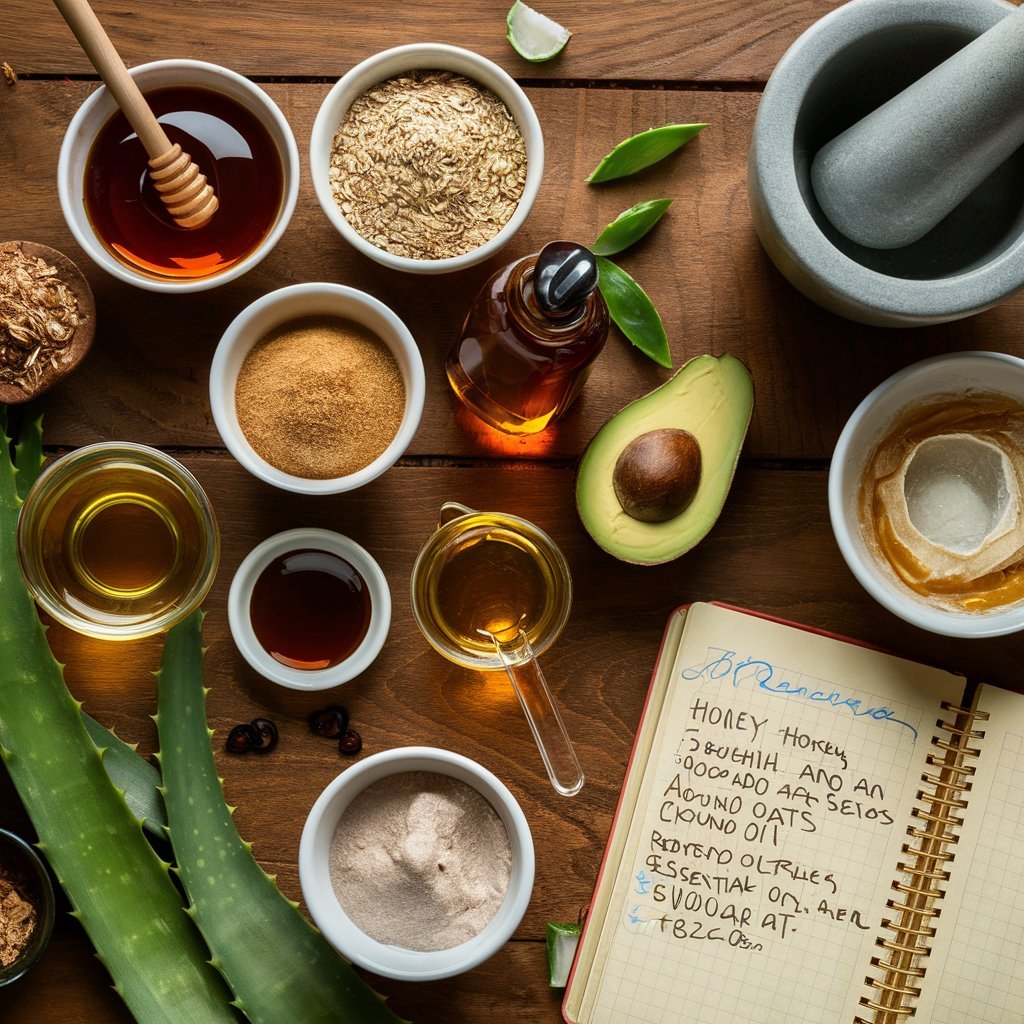
Common Misconceptions About Organic Skin Care
Myth: Organic Products Are Less Effective
One of the most common misconceptions about organic skin care is that it is less effective than conventional products. This myth likely stems from the belief that natural ingredients are not as potent as synthetic ones. However, the truth is that nature has provided us with some of the most powerful and effective ingredients known to man. Think about the healing power of honey, the soothing effects of lavender, or the hydrating properties of coconut oil. These ingredients have been used for centuries to treat a variety of skin conditions, and they continue to be just as effective today. The key is to choose high-quality, organic products that are formulated to deliver results.
Myth: Organic Skin Care Is Expensive
Another common myth is that organic skin care is prohibitively expensive. While it’s true that some high-end organic brands can be pricey, there are many affordable options available that do not compromise on quality. In fact, investing in organic products can save you money in the long run by preventing skin issues that require expensive treatments to fix. Additionally, many organic ingredients, such as coconut oil or aloe vera, can be purchased in their pure form and used in a variety of DIY recipes, making organic skin care accessible to everyone.
Myth: Organic Products Don’t Have a Long Shelf Life
There is also a misconception that organic products have a shorter shelf life than their synthetic counterparts. While it’s true that organic products often contain fewer preservatives, this does not mean that they will expire quickly. Many organic products use natural preservatives, such as vitamin E or rosemary extract, which can help to extend their shelf life. Additionally, because organic products are made from high-quality, fresh ingredients, they are often more effective, meaning you may use less product over time.
How to Transition to Organic Skin Care
Assessing Your Current Routine
Transitioning to organic skin care can feel overwhelming, especially if you’re used to a routine that is filled with synthetic products. The first step is to assess your current routine and identify which products you are using that contain harmful ingredients. Take a close look at the labels and do some research on the ingredients you are not familiar with. This will give you a better understanding of what you are putting on your skin and why it might be time to make a change.
Choosing the Right Organic Products
Once you’ve identified the products you want to replace, the next step is to choose the right organic alternatives. Look for products that are certified organic and made from high-quality ingredients. Pay attention to the ingredients list and choose products that are free from synthetic fragrances, parabens, and other harmful chemicals. It’s also important to choose products that are suited to your skin type. For example, if you have dry skin, look for products that are rich in hydrating ingredients like shea butter or jojoba oil. If you have oily or acne-prone skin, look for products that contain ingredients like tea tree oil or witch hazel, which can help to balance the skin’s natural oils.
Creating a Sustainable Beauty Routine
When transitioning to organic skin care, it’s important to remember that less is more. You don’t need a complicated routine with dozens of products to achieve healthy, glowing skin. In fact, using an excessive amount of products can irritate your skin. Instead, focus on creating a simple, sustainable routine that you can stick to. Start with the basics: a gentle cleanser, a moisturizer, and a sunscreen. Once you’ve established a solid foundation, you can start to incorporate additional products, such as serums or exfoliators, as needed.
Mindful Consumption: Less Is More
In the world of organic skin care, less is often more. Because these products are made from potent, natural ingredients, a little goes a long way. It’s important to use products mindfully and avoid over-applying, as this can lead to product buildup and clogged pores. Additionally, using less product means that your skin has more time to breathe and regenerate naturally. Remember, the goal of organic skin care is not to mask your skin’s imperfections but to enhance its natural beauty.
The Best Organic Skincare Techniques for Glowing Skin
Cleansing with Organic Products
Cleansing is the foundation of any good skin care routine, and it’s especially important when using organic products. Organic cleansers are made from gentle, natural ingredients that effectively remove dirt, oil, and makeup without stripping your skin of its natural moisture. Look for cleansers that contain ingredients like aloe vera, chamomile, or coconut oil, which can help to soothe and hydrate your skin while cleansing. It’s also important to cleanse your skin twice a day—once in the morning and once at night—to keep your skin clean and free from impurities.
Organic Exfoliation Techniques
Exfoliation is an important step in any skin care routine, as it helps to remove dead skin cells and promote cell turnover. However, it’s important to choose the right exfoliator for your skin type and to use it sparingly. Organic exfoliators are made from natural ingredients like sugar, salt, or crushed nuts, which can help to gently exfoliate your skin without causing irritation. Be sure to exfoliate no more than two to three times a week, and always follow up with a hydrating moisturizer to replenish your skin’s moisture barrier.
Moisturizing a Natural Approach
Maintaining hydated, smooth, and soft skin requires regular moisturizing. Organic moisturizers are made from natural oils and butters that provide deep hydration without clogging your pores. Look for ingredients like shea butter, jojoba oil, or avocado oil, which can help to nourish and protect your skin. It’s also important to choose a moisturizer that is suited to your skin type. Choose a lightweight, non-comedogenic moisturiser that won’t clog your pores if you have oily or acne-prone skin. If you have dry or sensitive skin, look for a richer, more hydrating formula.
Sun Protection with Organic Ingredients
Sun protection is one of the most important steps in any skin care routine, as it helps to protect your skin from the harmful effects of UV radiation. Organic sunscreens are made from natural, mineral-based ingredients like zinc oxide or titanium dioxide, which provide broad-spectrum protection without the use of synthetic chemicals. It’s important to apply sunscreen every day, even on cloudy days, and to reapply every two hours if you are spending time outdoors. Additionally, be sure to choose a sunscreen that is SPF 30 or higher for maximum protection.
The Importance of a Nighttime Routine
Your nighttime routine is just as important as your daytime routine, as it gives your skin time to repair and regenerate while you sleep. Start by cleansing your skin to remove any dirt, oil, or makeup that has accumulated throughout the day. Follow up with a hydrating toner or serum to replenish your skin’s moisture levels, and finish with a rich, nourishing moisturizer to lock in hydration. You can also incorporate treatments like face oils or overnight masks to give your skin an extra boost of nourishment. Remember, your skin does its best healing while you sleep, so it’s important to give it the care and attention it deserves.
The Role of Diet in Organic Skin Care
Foods That Nourish Your Skin
What you put inside your body is equally vital to what you put on your skin. A healthy, balanced diet can have a profound impact on the health and appearance of your skin. Incorporate plenty of fresh fruits and vegetables into your diet, as they are rich in vitamins, antioxidants, and nutrients that can help to nourish your skin from the inside out. Foods like berries, leafy greens, and citrus fruits are especially beneficial, as they are high in vitamin C, which helps to boost collagen production and protect your skin from environmental damage.
Staying Hydrated Naturally
Hydration is key to maintaining healthy, glowing skin. Make sure you are drinking plenty of water throughout the day to keep your skin hydrated and plump. You can also incorporate hydrating foods like cucumbers, watermelon, and celery into your diet, which can help to keep your skin moisturized from the inside out. Additionally, consider drinking herbal teas like chamomile or green tea, which can help to soothe and calm your skin.
The Relationship Between Skin Health and Gut Health
Your gut health is closely connected to the health of your skin, so it’s important to take care of your digestive system if you want to maintain healthy, clear skin. Incorporate plenty of fiber-rich foods into your diet, such as whole grains, fruits, and vegetables, which can help to keep your digestive system running smoothly. You may also want to consider taking a probiotic supplement, which can help to balance the good and bad bacteria in your gut and promote healthy digestion.
Superfoods for Radiant Skin
Certain foods are known for their skin-boosting properties and are often referred to as superfoods. Incorporating these foods into your diet can help to give your skin a natural glow. Some of the best superfoods for skin include:
- Avocado: Rich in healthy fats and vitamin E, avocados can help to keep your skin hydrated and supple.
- Salmon: Packed with omega-3 fatty acids, salmon can help to reduce inflammation and keep your skin looking healthy and radiant.
- Nuts and Seeds: High in vitamins and minerals, nuts and seeds can help to nourish your skin and protect it from environmental damage.
- Dark Chocolate: Yes, you read that right! Dark chocolate is rich in antioxidants that can help to protect your skin from free radicals and keep it looking youthful.
DIY Organic Skin Care Recipes
One of the best things about organic skin care is that you can easily create your own products at home using simple, natural ingredients. To help you get started, here are a few DIY recipes:
Homemade Face Masks
Avocado and Honey Mask:
- 1 ripe avocado
- 1 tablespoon honey
Mash the avocado in a bowl and stir in the honey until well combined. After applying the mask to your face, leave it on for 15-20 minutes before rinsing off with warm water. This mask is great for dry skin, as it is deeply hydrating and nourishing.
Natural Body Scrubs
Coconut Sugar Scrub:
- 1 cup coconut oil
- 1/2 cup sugar
Mix the coconut oil and sugar together in a bowl until well combined. Use the scrub in the shower to exfoliate your skin, focusing on rough areas like elbows and knees. This scrub is gentle enough for daily use and will leave your skin feeling soft and smooth.
Organic Hair Treatments
Coconut Oil Hair Mask:
- 2 tablespoons coconut oil
Warm the coconut oil in your hands until it melts, then apply it to your hair, focusing on the ends. After applying the mask for 30 to 60 minutes, wash it out with shampoo. This treatment is great for dry, damaged hair, as it helps to hydrate and repair your strands.
Simple Toners and Serums
Green Tea Toner:
- 1 cup brewed green tea (cooled)
- 1 tablespoon apple cider vinegar
Mix the green tea and apple cider vinegar together in a spray bottle and spritz it onto your face after cleansing. This toner is great for oily or acne-prone skin, as it helps to balance your skin’s natural oils and reduce inflammation.
Sustainable Beauty: Why It Matters
Environmental Impact of Organic Skin Care
Choosing organic skin care is not just good for your skin; it’s also good for the planet. The goals of organic farming methods include sustainability and environmental preservation. By choosing organic products, you are supporting a system that prioritizes the health of the soil, the plants, and the environment as a whole. Additionally, many organic skin care brands use eco-friendly packaging and are committed to reducing their carbon footprint.
Supporting Ethical Brands
When you choose organic skin care, you are also supporting ethical brands that prioritize transparency, sustainability, and social responsibility. Many organic brands are committed to fair trade practices, ensuring that the farmers and workers who produce their ingredients are paid fairly and treated with respect. By choosing these brands, you are making a positive impact on the world and supporting companies that are doing good.
Packaging Matters: Reducing Waste
Another important aspect of sustainable beauty is reducing waste. Many organic skin care brands use minimal or recyclable packaging, which helps to reduce the amount of waste that ends up in landfills. Additionally, some brands offer refillable options, allowing you to reuse your containers and reduce your environmental impact. When choosing organic products, look for brands that are committed to sustainability and are taking steps to reduce their packaging waste.
The Future of Organic Beauty
The organic beauty industry is growing rapidly, and it shows no signs of slowing down. As more and more people become aware of the benefits of organic skin care, the demand for these products continues to increase. This growth is driving innovation, with brands developing new, cutting-edge products that deliver results without compromising on purity or sustainability. The future of organic beauty is bright, and it’s exciting to see how the industry will continue to evolve.
Real-Life Transformations: Success Stories
Case Study: Reversing Acne with Organic Skin Care
Meet Sarah, a 28-year-old woman who struggled with acne for most of her adult life. Nothing seemed to work for all the products and treatments she had tried. That was until she discovered organic skin care. After switching about half a year into her journey with organic products, Sarah saw a dramatic improvement in her skin. Her acne cleared up, her skin tone became more even, and her confidence soared. Sarah’s story is a testament to the power of organic skin care and the importance of choosing products that are gentle, natural, and effective.
Case Study: Anti-Aging Benefits of Organic Ingredients
Lena, a 45-year-old mother of two, was concerned about the fine lines and wrinkles that had started to appear on her face. She decided to switch to organic skin care in hopes of finding a more natural solution to her aging concerns. After several months of using organic products, Lena noticed a significant reduction in the appearance of her fine lines and wrinkles. Her skin felt firmer, more hydrated, and more youthful. Lena’s story is a reminder that it’s never too late to start taking care of your skin and that organic products can be just as effective as conventional anti-aging treatments.
Case Study: Sensitive Skin and the Organic Solution
Emma, a 32-year-old woman with extremely sensitive skin, had always struggled to find products that didn’t cause her skin to react. She decided to give organic skin care a try, and the results were nothing short of miraculous. Within weeks, Emma’s skin was calmer, less red, and less prone to breakouts. She finally found a routine that worked for her, and she couldn’t be happier. Emma’s story is a testament to the gentle, soothing nature of organic skin care and the importance of choosing products that are kind to your skin.
The Emotional Connection to Organic Skin Care
Skin Care as Self-Care
Taking care of your skin is an act of self-love, and there is a deep emotional connection between how we care for our skin and how we care for ourselves. When you choose organic skin care, you are choosing to prioritize your well-being and to treat yourself with kindness and respect. The ritual of applying a nourishing cream, massaging in a soothing oil, or taking the time to create a homemade mask is a form of self-care that can have a profound impact on your overall well-being.
The Ritual of Organic Beauty
There is something special about the ritual of organic beauty. The process of selecting, applying, and enjoying organic products is an experience that goes beyond the physical. It’s a moment of connection with yourself, with nature, and with the world around you. When you choose organic skin care, you are choosing to embrace a more conscious, mindful approach to beauty. Emotional well-being is just as important as physical attractiveness.
Conclusion
In a world that is increasingly fast-paced and synthetic, organic skin care offers a return to simplicity, purity, and authenticity. It’s a reminder that the best things in life are often the most natural and that true beauty comes from within. By choosing organic products, you are not only taking care of your skin, but you are also making a positive impact on the environment and supporting ethical, sustainable practices. Organic skin care is more than just a trend; it’s a movement that is here to stay. So, why not take the first step towards a healthier, more radiant you? Your skin—and your soul—will thank you.
FAQs
Q: What is the difference between organic and natural skin care?
A: While both organic and natural skin care products are made from natural ingredients, the main difference is that organic products are made from ingredients that are grown and processed without the use of GMOs, pesticides, or artificial chemicals. Natural products may still contain synthetic ingredients, so it’s important to read the labels and choose products that are certified organic.
Q: Are organic skin care products suitable for all skin types?
A: Yes, organic skin care products are generally suitable for all skin types. However, it’s crucial to choose skin care products that are made especially for your skin type. For example, if you have oily or acne-prone skin, look for products that contain ingredients like tea tree oil or witch hazel, which can help to balance your skin’s natural oils. If you have dry or sensitive skin, look for products that contain hydrating ingredients like shea butter or jojoba oil.
Q: How can I tell if a product is truly organic?
A: To ensure that a product is truly organic, look for certification from a reputable organization like the USDA or Ecocert. These certifications ensure that the product is made from ingredients that are grown and processed without the use of synthetic chemicals or GMOs. Additionally, check the ingredients list to make sure that the product does not contain any synthetic fragrances, parabens, or other harmful chemicals.
Q: Can I make my own organic skin care products at home?
A: Yes, many organic skin care products can be made at home using simple, natural ingredients. For example, you can create your own face masks, body scrubs, or hair treatments using ingredients like avocado, honey, or coconut oil. DIY organic skin care is a great way to ensure that you are using pure, natural ingredients on your skin, and it can also be a fun and rewarding experience.
Q: Are organic skin care products better for the environment?
A: Yes, organic skin care products are generally better for the environment because they are made from ingredients that are grown and processed without the use of synthetic chemicals or pesticides. Additionally, many organic brands use eco-friendly packaging and are committed to reducing their carbon footprint. By choosing organic products, you are supporting sustainable farming practices and helping to protect the environment.
Q: How long does it take to see results with organic skin care?
A: The time it takes to see results with organic skin care can vary depending on the individual and the specific products used. However, many people start to see improvements in their skin within a few weeks of switching to organic products. It’s important to be patient and consistent with your routine, as it can take time for your skin to adjust to new products and for the benefits to become apparent.
Also Visit:
The Hidden Magic of Palm Tree Product Used in Skin Care 2024
